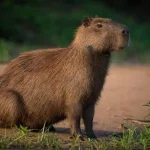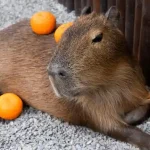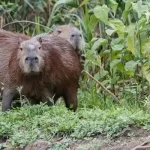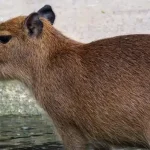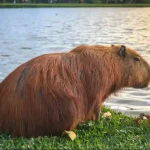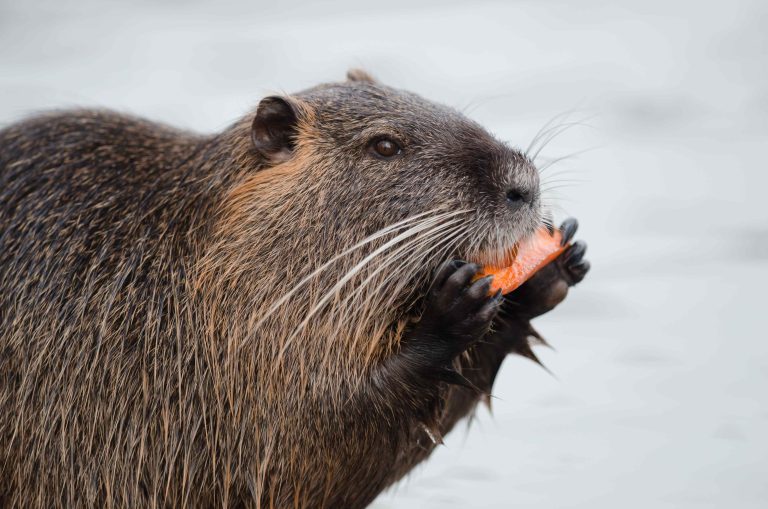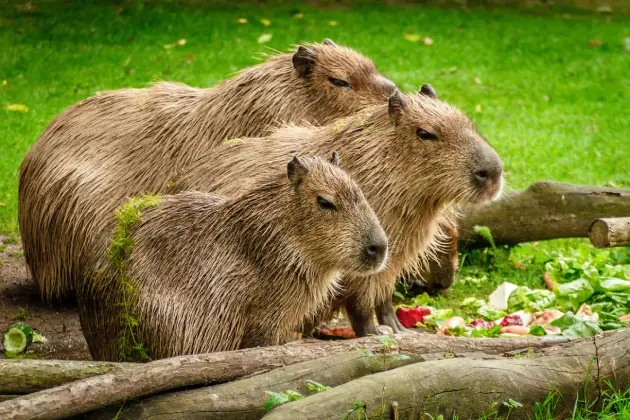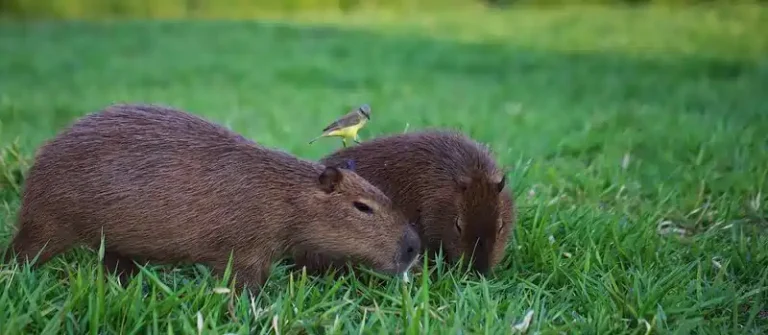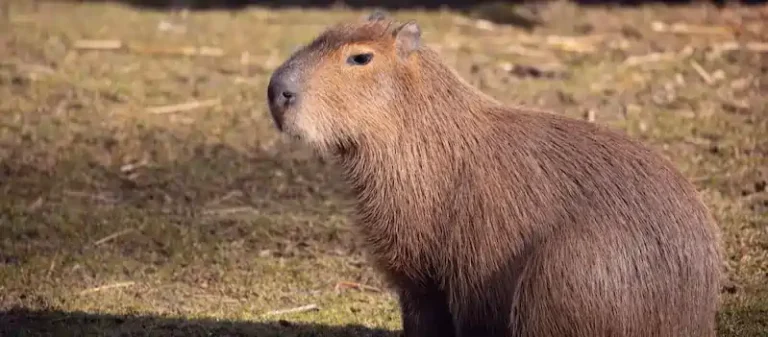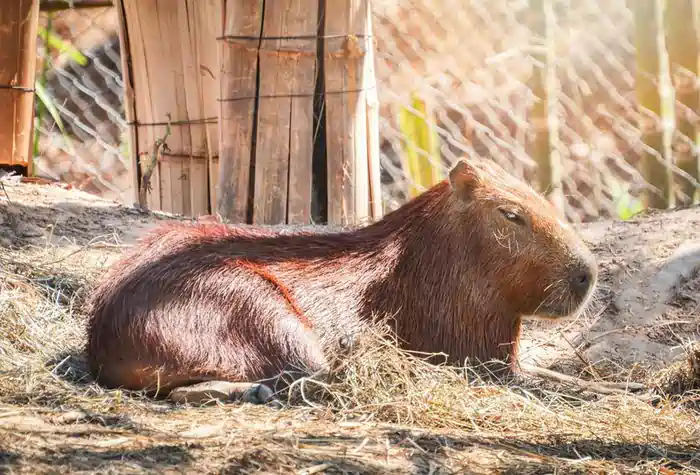
Capybaras are gentle, social creatures that have become popular as exotic pets. Their friendly nature and unique appearance have made them a favorite among pet lovers. However, before you consider bringing a capybara into your home, especially if you live in Georgia, it’s important to understand whether owning a capybara is legal in the state. In this article, we will explore the rules surrounding capybara ownership in Georgia and answer some common questions about these fascinating animals.
What is a Capybara?
Before diving into the legalities of owning a capybara, let’s first take a closer look at this amazing animal. Capybaras are the largest rodents in the world and are native to South America. They are known for their calm demeanor, social behavior, and love for water. In the wild, capybaras live in groups near rivers, lakes, and wetlands. As pets, they require a similar environment, with access to water and plenty of space for socializing.
Can You Own a Capybara in Georgia?
The answer to this question is no, at least not legally. Capybaras are classified as exotic animals in Georgia, and the state has strict regulations on owning certain exotic species. According to Georgia law, capybaras cannot be kept as pets in the state. These animals are considered “wildlife,” and owning one requires special permits or licenses, which are not typically granted for capybaras.
Georgia is one of the many states that have banned the ownership of certain exotic pets, including capybaras. This regulation is in place to protect the animals as well as the environment. Exotic pets can pose a risk to local ecosystems and may carry diseases that could affect humans and other animals.
Why Are Capybaras Banned as Pets in Georgia?
There are several reasons why capybaras are not allowed as pets in Georgia. One of the main concerns is that they are not native to the area, and their introduction could disrupt the local ecosystem. Capybaras are large animals, and they require a specific habitat to thrive. They need access to water and space to roam. If they are kept in an environment that is not suitable for them, they can become stressed, which may lead to health problems.
Additionally, capybaras are social animals and need constant interaction with other capybaras or humans. A single capybara may feel lonely and distressed, leading to behavioral issues. These animals require a lot of attention and care, which can be a challenge for many pet owners.
What Are the Alternatives to Owning a Capybara in Georgia?
If you live in Georgia and are disappointed that you can’t own a capybara as a pet, you may want to consider alternative pets that are allowed in the state. Many other exotic animals, such as rabbits, guinea pigs, and hamsters, are legal to keep in Georgia. These animals are smaller, easier to care for, and do not require as much space as capybaras.
In addition to smaller exotic pets, you could also consider adopting a more common pet, such as a dog or a cat. Both of these animals can make wonderful companions and are easier to care for compared to exotic animals like capybaras.
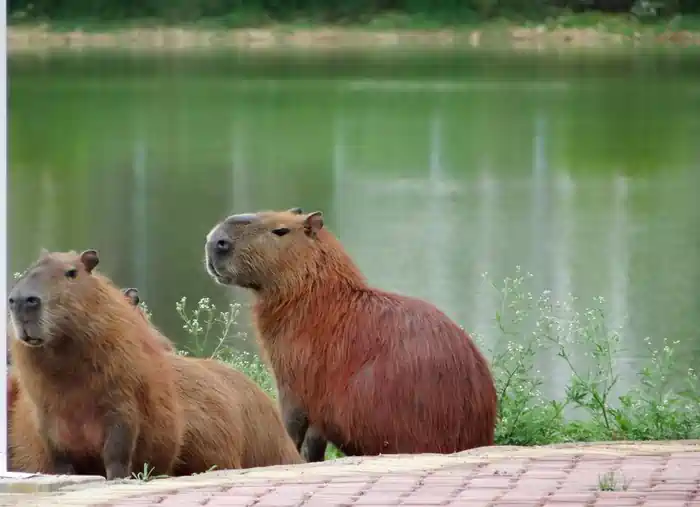
The Care Requirements of a Capybara
If you are curious about the care requirements of a capybara, even though they are not legal to own in Georgia, it’s worth knowing what goes into taking care of one. Capybaras are high-maintenance pets, and they require a lot of attention. Here are some of the basic care needs of a capybara:
Space and Environment
Capybaras need a large outdoor area to roam and explore. They are not suited for small apartments or homes with limited yard space. A proper environment for a capybara includes a large pool or pond, as they love to swim. They also need a secure fence to prevent them from wandering off.
Social Interaction
Capybaras are very social animals and do best when they have companionship. Ideally, you should have more than one capybara so they can interact with each other. If this is not possible, they will need a lot of human interaction to keep them happy and healthy.
Diet and Nutrition
Capybaras are herbivores, and their diet mainly consists of grass, hay, and vegetables. They also enjoy fruits as treats but should not be fed too many sugary foods. Fresh water is essential for their health, and they need to have access to it at all times.
Veterinary Care
Like all pets, capybaras need regular checkups with a veterinarian. They can suffer from various health issues, such as dental problems and skin infections, if not properly cared for. Regular vet visits are important to keep them healthy.
Conclusion
If you live in Georgia, owning a capybara as a pet is not allowed under state law. Capybaras are exotic animals that require a specific environment and a lot of care. While they may seem like a fun and unique pet, they are not suitable for every household. If you’re interested in exotic animals, it’s important to research the laws in your state and consider other pets that are legal and easier to care for.
At Capybara Pet Info, we understand how much people love these amazing animals. Even though you can’t legally own a capybara in Georgia, we hope this article has provided you with the information you need to make an informed decision about your next pet.
Frequently Asked Questions (FAQs)
1. Can You Legally Own a Capybara as a Pet in Georgia?
No, capybaras are classified as exotic animals in Georgia, and it is illegal to own them as pets in the state.
2. What Other Exotic Pets Are Legal in Georgia?
While capybaras are banned, some other exotic pets are allowed in Georgia. Common exotic pets that are legal include rabbits, guinea pigs, and hamsters.
3. How Big Do Capybaras Get?
Capybaras can grow quite large, with adult capybaras typically weighing between 100 and 150 pounds. They can also reach up to 4 feet in length.
4. What Do Capybaras Eat?
Capybaras are herbivores and primarily eat grasses, hay, and vegetables. They can also enjoy occasional fruits as a treat.
5. Can You Keep a Single Capybara as a Pet?
It is not recommended to keep a single capybara as a pet because they are highly social animals. They tend to feel lonely and stressed when kept alone, which can lead to health and behavioral issues.


